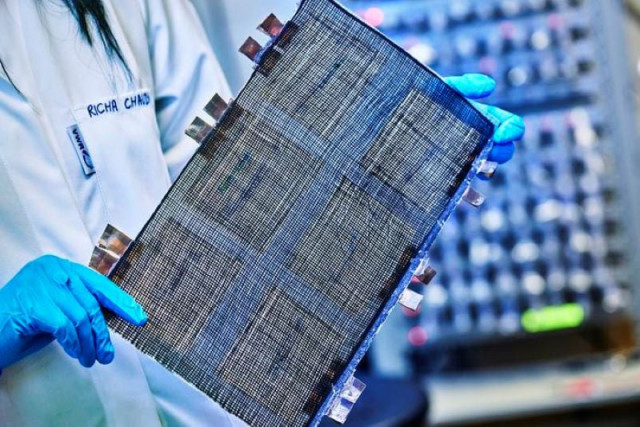World’s strongest battery set to revolutionise energy efficiency in future vehicles
The new technology could potentially reduce the weight of laptops by half, make mobile phones as thin as a credit card

Researchers at Sweden’s Chalmers University of Technology have unveiled a breakthrough in massless energy storage with the development of a structural battery.
This new technology could potentially reduce the weight of laptops by half, make mobile phones as thin as a credit card, and extend the range of electric vehicles by up to 70% per charge.
“We have succeeded in creating a battery made of carbon fibre composite that is as stiff as aluminium and energy-dense enough to be used commercially,” said Richa Chaudhary, lead author of the research published in Advanced Materials. “Just like a human skeleton, the battery has several functions at the same time.”
Chalmers has been at the forefront of structural battery research for years, alongside collaborations with KTH Royal Institute of Technology. The group's 2018 discovery that carbon fibres could store energy as electrodes in lithium-ion batteries drew significant attention, with the innovation ranked among the top ten breakthroughs by Physics World.
The research team has now increased both the stiffness and energy density of the battery. While its energy capacity, at 30 Wh/kg, is still below conventional batteries, the lightweight structure compensates by reducing the energy required to power vehicles. “Electric cars could drive up to 70 percent further than today with competitive structural batteries,” said research leader Leif Asp.
Asp also highlighted the strength of the battery material, which can handle loads like aluminium but with significantly lower weight. He added, “In terms of multifunctional properties, the new battery is twice as good as its predecessor—and actually the best ever made in the world.”
The research has sparked interest from industries, particularly automotive and aerospace, with Chalmers Venture's newly established company, Sinonus AB, aiming to commercialise the technology. However, more engineering work is needed before large-scale production can commence.
“We might see credit card-thin mobile phones and lightweight laptops first,” said Asp. “But the technology could also have a significant impact on components in cars or planes.”
The study, titled Unveiling the Multifunctional Carbon Fibre Structural Battery, was co-authored by Richa Chaudhary, Johanna Xu, Zhenyuan Xia, and Leif Asp. The battery’s design, which utilises multifunctional carbon fibre as both reinforcement and current collector, eliminates the need for heavy metals like cobalt, further reducing its weight and improving sustainability.



















COMMENTS
Comments are moderated and generally will be posted if they are on-topic and not abusive.
For more information, please see our Comments FAQ